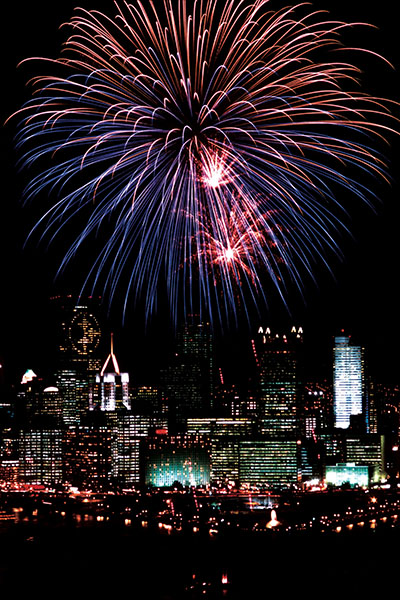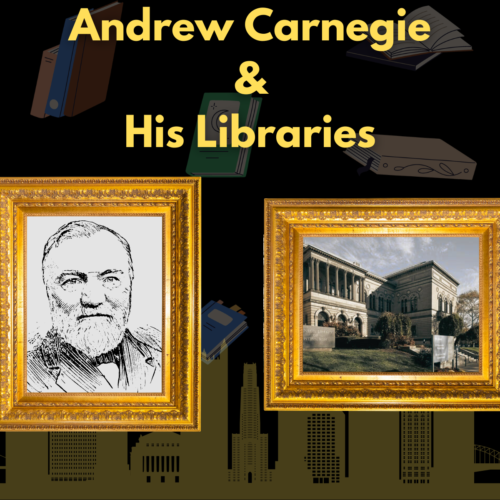
Remembering Three Pittsburgh Police Officers
June 14, 2021
Best Places to Watch Fireworks in the Burgh
June 28, 2021
Independence Day, better known as “the fourth of July,” celebrates America’s separation from England. Many people believe that July 4th, 1776 is the date that the Patriots won the Revolutionary War. But that is not entirely true. Furthermore, some Americans don’t even know why the original 13 colonies wanted independence from Britain. Therefore, Popular Pittsburgh has put together a short explanation of the history behind the holiday.
Setting the Scene
 In the mid-18th century, there were 13 colonies. They made up what is now the East Coast of the United States. These colonies were ruled by a king—King George III—an ocean away. More specifically, royal governors ruled the colonies in the name of the king. By 1770, Britain was deeply in debt and dealing with the aftermath of both the French and Indian War, and the Seven Years’ War. To reconcile this debt the king began to heavily tax the colonies.
In the mid-18th century, there were 13 colonies. They made up what is now the East Coast of the United States. These colonies were ruled by a king—King George III—an ocean away. More specifically, royal governors ruled the colonies in the name of the king. By 1770, Britain was deeply in debt and dealing with the aftermath of both the French and Indian War, and the Seven Years’ War. To reconcile this debt the king began to heavily tax the colonies.
As governmental power began to shift towards Parliament and away from the king, there was no colonial representation–taxation without representation. The Stamp Act and the Townshend Acts, dictated by a far-away governing body, led to civil unrest. Colonial contempt for the king’s rule quickly resulted in the events known as the Boston Massacre of 1770 and the Boston Tea Party of 1773. Representatives from 12 of the 13 colonies met in 1774 at the First Continental Congress to draft a petition against the unjust laws.
Everything came to a boiling point on April 19, 1775, when the colonies entered war against England at the battles of Lexington and Concord. One month later, in Philadelphia, the Second Continental Congress appointed George Washington as General of the Continental Army.
The Significance of July 4th
In the summer of 1776, delegates from all 13 colonies convened again in Philadelphia. Delegates brought forth the resolution to break from England on July 1st. However, a divided view delayed the vote. After much debate, on July 2nd, the Continental Congress unanimously voted to sever ties with Britain. It took two days for Thomas Jefferson to draft the document that would notify the crown of their intent to break free. The delegates signed the Declaration of Independence on July 4th, 1776.
much debate, on July 2nd, the Continental Congress unanimously voted to sever ties with Britain. It took two days for Thomas Jefferson to draft the document that would notify the crown of their intent to break free. The delegates signed the Declaration of Independence on July 4th, 1776.
Yet, the war did not end here; it continued on for seven more years. The patriots were the ‘underdog’. But, the words written in the Declaration of Independence were strong motivation. They fiercely believed that all men are endowed by their Creator with “certain unalienable Rights, that among these are Life, Liberty, and the pursuit of Happiness”. That conviction powered the revolution. It brought victory to the patriots, thus establishing a new nation.
Independence Day
A signer of the Declaration of Independence, and our second President, wrote of that day. John Adams speculated about how it would be commemorated in history:
I am apt to believe that it will be celebrated, by succeeding Generations, as the great anniversary Festival. It ought to be commemorated, as the Day of Deliverance by solemn Acts of Devotion to God Almighty. It ought to be solemnized with Pomp and Parade, with Shews, Games, Sports, Guns, Bells, Bonfires and Illuminations from one End of this Continent to the other from this Time forward forever more.
Not only did our Founding Fathers give us our freedom, but they also told us how to celebrate it. And we still do nearly 250 years later. 




